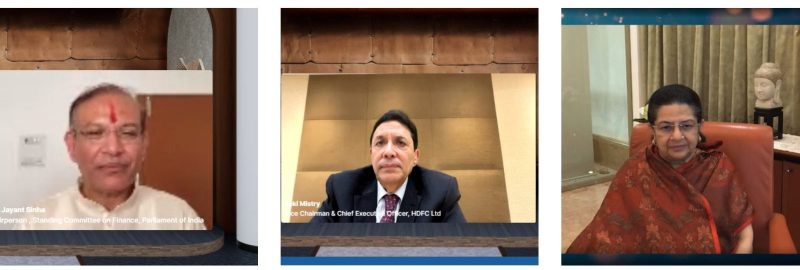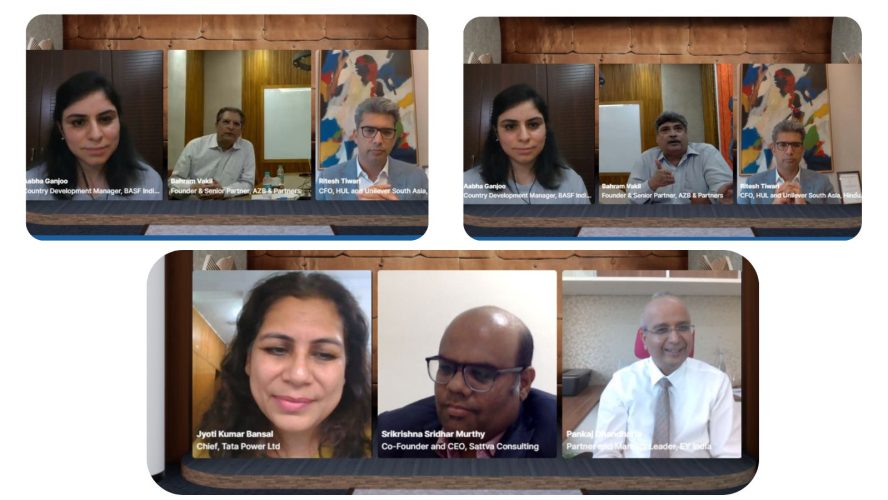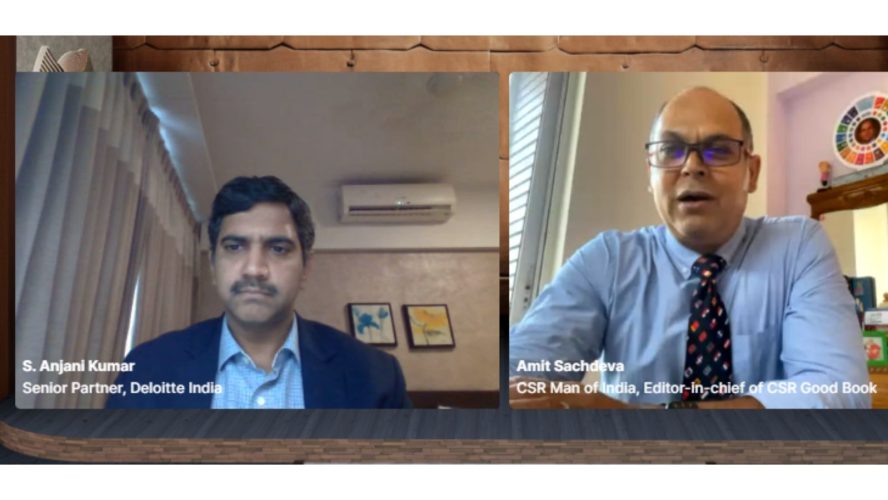In his Keynote address on Getting to the Green Frontier, Mr Jayant Sinha raised concerns about a sustainable future and what we need to do to work towards a green frontier. The variability in the weather globally, and in India, has left current policies unsustainable, leading to significant stress on India and the Indian agricultural harvests, causing food insecurity. Hence, as per Mr Sinha, there is a need to move from the current farm to factory development format that is modelled on international standards, towards the green frontier. According to Mr Sinha, the need is to bend the carbon emissions curve and show that net zero is net positive.
In her address, Ms Rajashree Birla spoke about how the CSR law signals a watershed moment by enabling and enhancing the base of the underprivileged and becoming an opportunity for businesses to be a part of the Indian economy. She also shared Aditya Birla Group’s learnings in CSR, over the decades.
In his Keynote address, Mr Keki Mistry spoke about how the CSR mandate offers an opportunity for corporates to participate in the fulfillment of the SDGs, and during times of crisis such as the Covid-19 pandemic. Mr Mistry spoke about how, while India’s CSR has matured to an extent where we have seen benefits, and have developed our competencies internally, moving towards strategic CSR, there have been regional imbalances and imbalances in thrust areas, particularly senior citizens and certain geographies that are yet not under CSR funding. He also addressed the need for ESG integration and changing goal posts because of geo-political reasons.
The first session saw an informative discussion on the topic of CSR Compliance: The Paradigm Shift. Moderated by Ms Aabha Ganjoo, Country Development Manager, BASF India, the panel had Mr Bahram Vakil, Founder & Senior Partner, AZB & Partners, Mr Ritesh Tiwari, Senior Vice President, Bombay Chamber and CFO, Hindustan Unilever and Unilever South Asia and Mr Noshir Dadrawala, CEO, Centre for Advancement of Philanthropy, discuss on how CSR has undergone a paradigm shift and has now been brought into the boardroom. The panel clarified specific rules in CSR, and also mentioned that there was too much compliance, making it onerous for many companies. Their message to the government was that, as there is an ease of doing business, there should also be ease of doing good, as well. Further, NGOs need to gear up capacity and corporates need to strategise, while CSR funds should be thrust towards ESG as we move along.
The second panel, moderated by Ms Jyoti Kumar Bansal, Chief – Sustainability, CSR, Branding & Communications, TATA Power, had panel members Mr Pankaj Dhandharia, Partner and Markets Leader, EY India and Mr Srikrishna Sridhar Murthy, Co-Founder and CEO, Sattva Consulting, deliberate on the topic ‘An impactful CSR strategy,’ and how with CSR being mandated, corporates need to focus on impact and put that out for stakeholders to see. The discussion veered towards the importance of strategising the large outlay of CSR funds with a good impact on the socio-economic development of the country. This panel also stressed how CSR has matured from random activities to purpose-driven strategies and how it is important to look at creating multipliers through innovation and collaboration.
The Fireside chat, featuring Mr S. Anjani Kumar, Senior Partner, Deloitte India in conversation with Amit Sachdeva, CSR Man of India, Ambassador of SDG Choupal initiative of NITI Aayog and Editor-in-chief of CSR Good Book, attempted to decipher how CSR integrates into ESG and how this can be linked into corporate strategies. Mr Sachdeva mentioned how this has to be intertwined with the strategy and not just about clever accounting and PR. However, there is also a need to keep cultural contexts and concepts in mind while measuring CSR.
Ms Pearl Tiwari, Chairperson, CSR Committee Bombay Chamber and President (CSR & Sustainability), Ambuja Cements, closed the session by explaining how the CSR mandate in India is a big opportunity to make businesses sustainable with a great reputation, as well as provide them a platform to participate in nation building.












